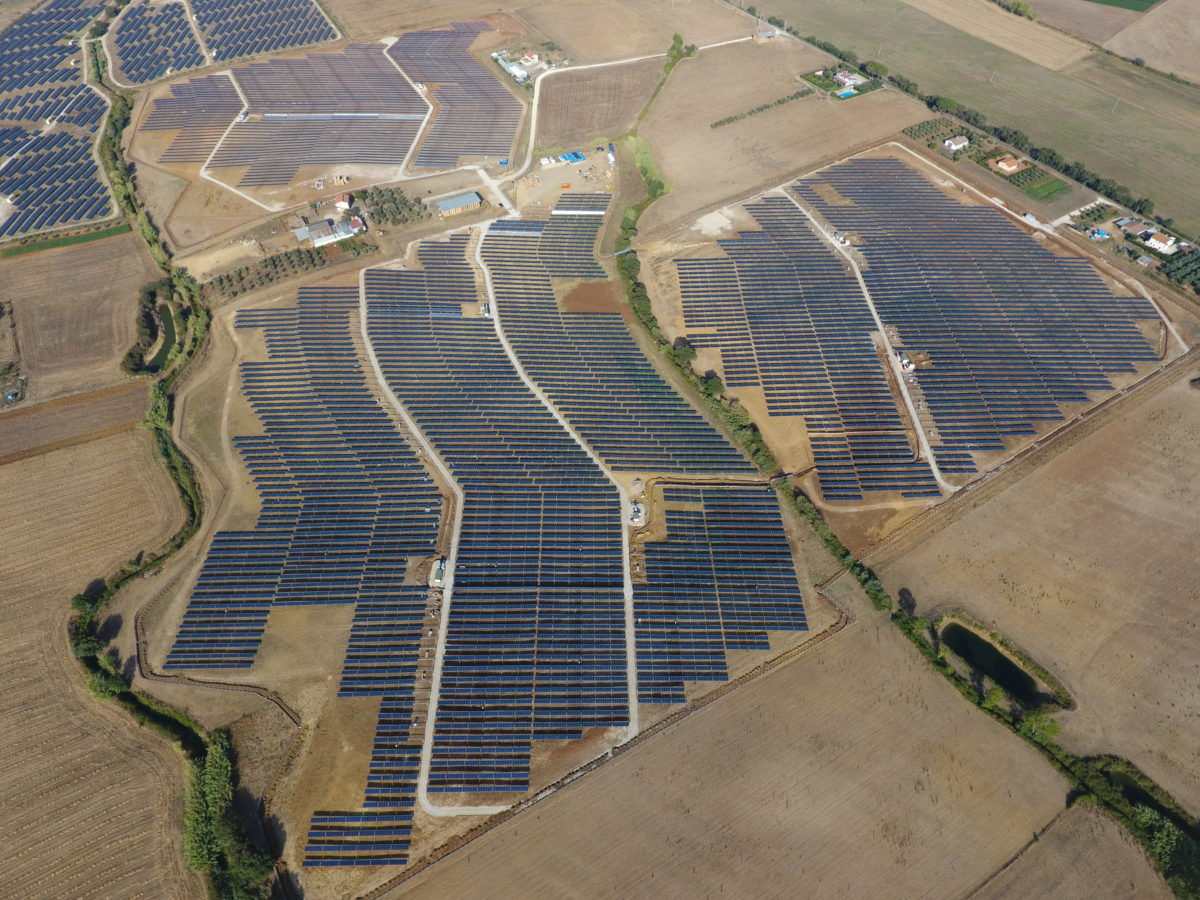The Italian municipality of Montalto di Castro, in the Viterbo province of Lazio, has hosted the nation’s largest PV project for years: an 84 MW facility completed in 2010. The central Italian location was also home to the country’s first “grid parity”, utility scale solar projects, built by U.K.-based Octopus Investments in 2017.
The small town, with neighboring Tuscania, appears to have been identified by PV project developers as the perfect location for the sort of big solar parks traditionally difficult to realize in Italy.
According to a document published by countryside group Italia Nostra, five big projects are planned for Tuscania and four in Montalto, for more than 710 MW of new PV capacity.
The largest is a 150 MW plant DCS srl Pian di Vico hopes to build in Tuscania and which the Lazio regional government has approved. Two more projects, with planned capacities of 112 and 113.5 MW are being developed by Solar Italy III srl and Solar Italy IV srl, respectively, in Montalto, and Solar Italy I srl and Solar Italy II srl are proposing projects of 70 and 80 MW, respectively, in Tuscania.
Opposition to solar
Italia Nostra says another two solar facilities – with capacities of 72 and 54.2 MW – are being planned in Montalto by CFR srl and Camposcala Srl, respectively, and two more projects, of 17.2 and 21.5 MW, are under development by Limes I Srl and Limes II Srl, respectively, in Tuscania.
The projects are expected to occupy around 1,200 hectares, according to the environmental group. “There is an uncontrolled development and spread of these types of plants on the regional territory whose proliferation, due to the simplified authorization regime, is generating important and widespread impacts on the landscape which have attracted strong attention from local communities,” Italia Nostra stated to the regional government.
Solar energy association Italia Solare has defended land-use in relation to the development of large-scale projects, in comments to the Italian parliament’s committee for agriculture. The trade body said the majority of the country’s commercial and industrial buildings are not suitable for solar and if Italy wants to hit ambitious renewable energy targets, rooftop PV may not be enough. Italia Solare claimed 53 GW of large scale PV capacity by 2030 would occupy only 0.64% of Italy’s agricultural land.
Rooftops are not enough
“[There is] no doubt about the priority of rooftop installations but, realistically, to achieve the objectives of reducing CO² emissions, it is not possible to set aside photovoltaic installations on the ground,” the association said. “It would be enough to devote 1.6% of the agricultural land lost in recent years to photovoltaics to reach 43 GW of installations. But also using marginal land, this percentage will … be less,” said the group.
Elsewhere, a 123 MW solar project in Troia, in the southern Italian region of Apulia, has been acquired by Danish company European Energy. The plant had been approved by the regional government in 2011, when the Conto Energia FIT program was still running but appeared doomed to fail after the incentive scheme closed. With grid parity solar becoming a reality in Italy in recent years, however, interest in large scale projects has revived.
Italy has an installed PV capacity of around 20 GW and the Ministry of Economic Development in December issued its National Integrated Plan for Climate and Energy 2030, which aims for cumulative installed PV capacity of 50 GW by 2030.
This content is protected by copyright and may not be reused. If you want to cooperate with us and would like to reuse some of our content, please contact: editors@pv-magazine.com.




2 comments
By submitting this form you agree to pv magazine using your data for the purposes of publishing your comment.
Your personal data will only be disclosed or otherwise transmitted to third parties for the purposes of spam filtering or if this is necessary for technical maintenance of the website. Any other transfer to third parties will not take place unless this is justified on the basis of applicable data protection regulations or if pv magazine is legally obliged to do so.
You may revoke this consent at any time with effect for the future, in which case your personal data will be deleted immediately. Otherwise, your data will be deleted if pv magazine has processed your request or the purpose of data storage is fulfilled.
Further information on data privacy can be found in our Data Protection Policy.